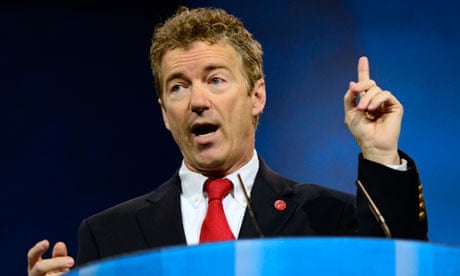You don't have to be a rocket scientist to know that the Republican party has a problem with the millennial generation. Americans born after 1980 voted by some 25pt for President Obama over Mitt Romney, while the rest of the electorate narrowly supported the Republican candidate. It's my view that Republicans can do little to attract most Millennials – but privacy may be the exception.
Our Guardian poll conducted by Public Policy Polling indicated that Democrats were more supportive of President Obama's position on the National Security Agency (NSA) leaks than other parts of the electorate:
• 58% of Democrats were OK with the government collecting data on internet or phone data, compared with 44% of voters overall
• By a 4pt margin, Democrats were more fearful of putting national security at risk than of infringing civil liberties. That compares with a 22pt margin going the other way among the overall sample
• Only 28% of Democrats said that the information learned made them less likely to support President Obama against 48% of the electorate overall
These results aren't too surprising given that a political base usually support its leader. That's why you saw far more Democrats supporting Obama's actions on collection and access of phone and internet records than for a somewhat similar policy under President Bush, while Republicans were far more receptive of the policies under Bush than under Obama.
You'd expect, therefore, that young voters – who are the bedrock of the Democratic base – to be receptive to President Obama's actions. You'd be wrong. Young voters are overwhelmingly against the NSA's access to internet and phone records.
• A meager 27% said the government should be accessing internet or phone records – 31pt lower than Democrats overall
• 73% were more fearful of an infringement of their civil liberties, compared to 15% who were more afraid of putting national security at risk. This 58pt margin is a reversal of the 4pt margin of Democrats who were more scared of a terrorist attack than abridgement of civil liberties
• 69% of young voters said that what they learned from the NSA leaks made them less likely to support President Obama – 41pt greater than Democrats. Exactly zero young voters in our sample said what they learned made them more likely to support Obama
To me, this indicates a tremendous opening for Republicans: 69% of young voters think that this country needs a fresh conversation about privacy versus security – and they are not with President Obama or the Democrats on this issue. If Republicans don't at least discuss it, it will be an opportunity lost.
